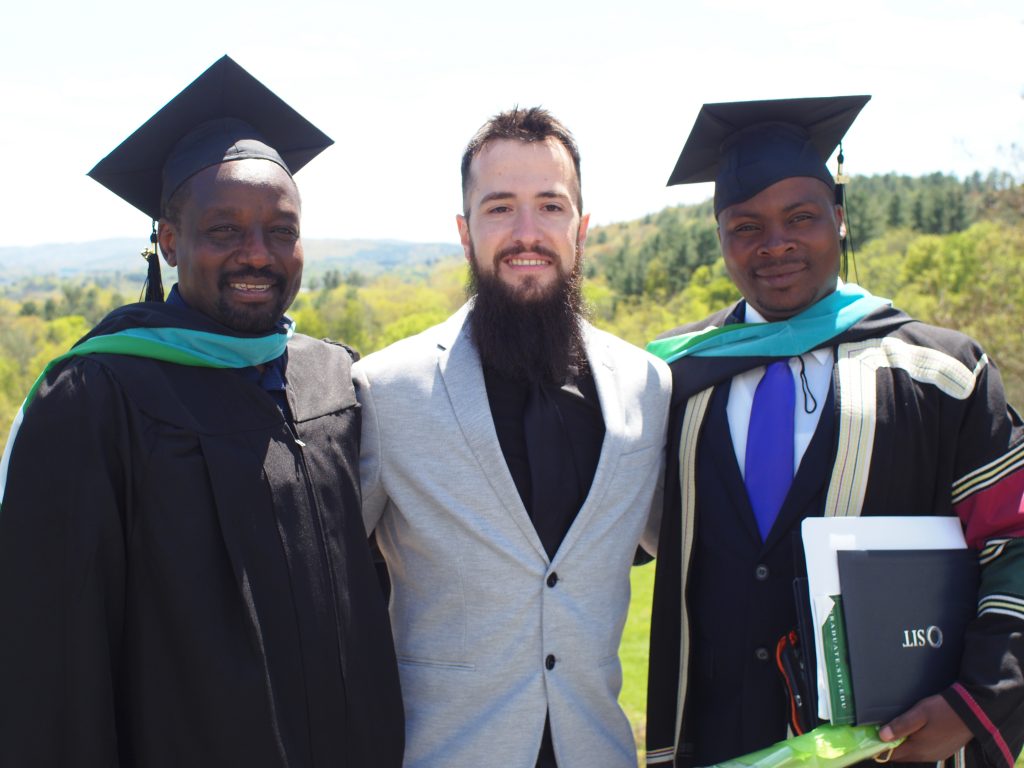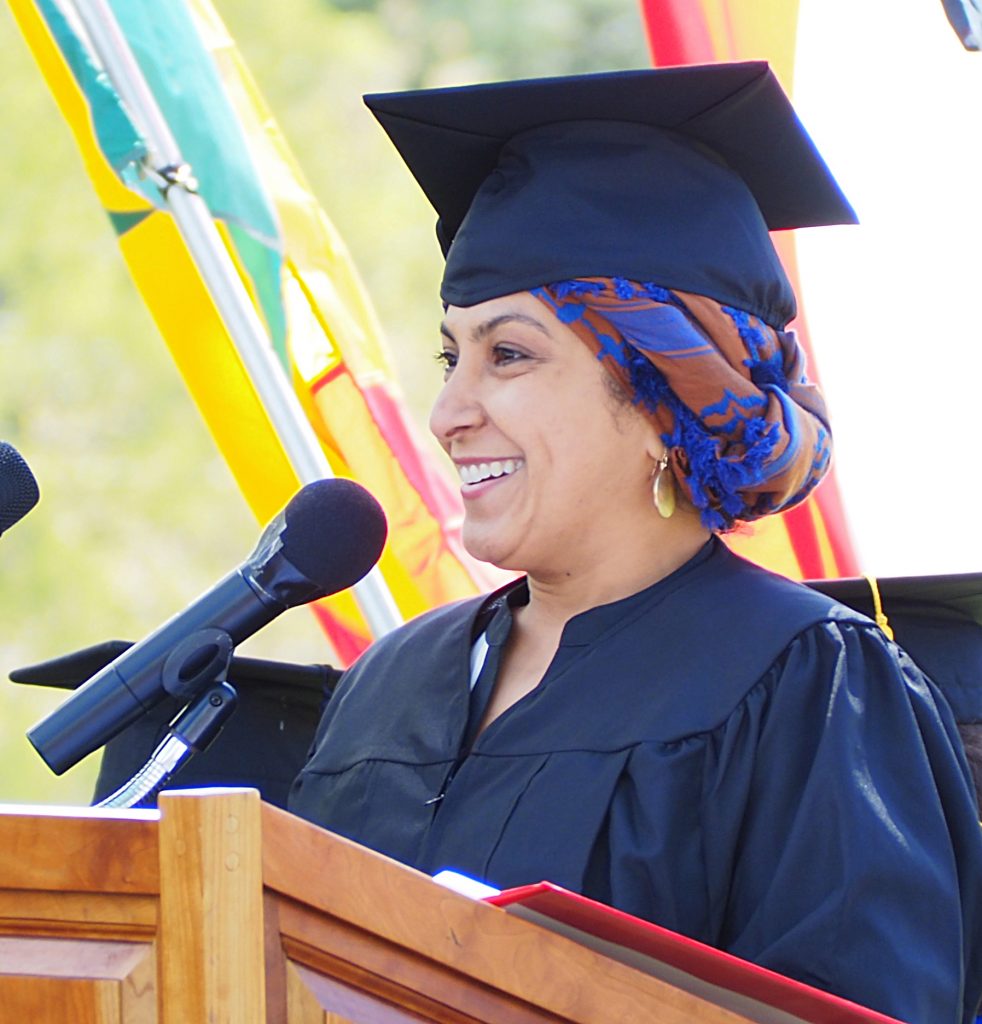Global Scholars, Global Citizens
May 15th, 2019 | SIT Graduate Institute

Among the many graduates walking SIT’s commencement stage in 2019 were four of the school’s five Global Scholars, students who came to the U.S. as refugees or asylum -seekers. SIT began the program in 2016 as a way to push back against growing xenophobia and nationalism. The scholars, who attended SIT on full scholarships, come from Democratic Republic of the Congo, Sudan, Syria, Uganda, and Yemen.
Kenneth Mukonyezi of Uganda, the fifth of the five scholars, completed his degree program in December and is currently living and working in the Boston area.
Bahati Kanyamanza, from DR Congo, lived for many years in a refugee camp in Uganda where he and two friends started COBURWAS International Youth Organization to Transform Africa (CIYOTA) in order to help refugee children attend school.
Bahati says his SIT degree in Sustainable Development “gives me confidence to go out there and say, ‘I can do this.’ Now I have the theoretical background, the skills for managing a social sector organization and even doing monitoring and evaluation. I can say I’m a professional. I’m an expert in this.”
He now lives in Fort Worth, Texas, and hopes to find new work in his field while continuing to guide the efforts of CIYOTA in Uganda. To learn more about Bahati, check out this On SITe podcast episode.
Abdou Edris, from Sudan’s Darfur region, also studied Sustainable Development. He’s currently working in Buffalo, New York, as a case manager for a behavioral health organization, and hopes to eventually find work in a more internationally focused development job.
Abdou says SIT gave him “lots of experience with theory in a framework that applies directly to my job and to my future plans. Here I got a specialization in policy advocacy – it helped me understand how to help people to organize and to mobilize, to take a different strategy to succeed at their goals domestically and at an international level.”
Tamam Abulteaf, a member of the Syrian minority Druze community who fled the Syrian war, received his MA in Peacebuilding and Conflict Transformation. He’s now working with Brattleboro-based Jerusalem Peacebuilders, an interfaith organization that fosters connections between youth from both sides of the Israeli-Palestinian conflict to help create long-term peace.
“If I had to use only one word to describe SIT, I’d say ‘transformative,’” Tamam says. “Reflecting back, I see the journey of growth was three-dimensional – personal, academic, and professional.”
He credits his professors for that growth, but gives much credit as well to his fellow students. The possibilities for learning from others’ experiences and knowledge, he says, has a lot to do with SIT’s experiential learning approach. His classes “really set me up to do what I’m doing right now – I’m an educator, and I also have a role in curriculum development. The bridge between theory and practice was there throughout SIT.”

Fadia Thabet, from Yemen, worked with youth in conflict zones as a child protection officer, helping prevent the recruitment of young boys by Al Qaeda and Houthi militias, and reporting human rights violations to the U.N. In 2017, she received the State Department’s International Women of Courage Award for that work. In 2019, she was SIT’s student speaker for commencement.
“SIT was a life-changing experience,” Fadia says. “It has given me the opportunity to give voice to the voiceless so that they can assume leadership roles in the world.”
To learn more about Fadia, check out this On SITe episode.
Bahati sums up something you hear often from these and other SIT graduate students. “My big takeaway from being at SIT – I would tell you that everything is about social justice. SIT not only provides skills and knowledge to students, but also, it challenges them to go out and see what contribution they can make, at an individual and collective level.
“When you come out, you are a different human being. And no matter where we’re placed, we are global citizens, citizens of the world.”
